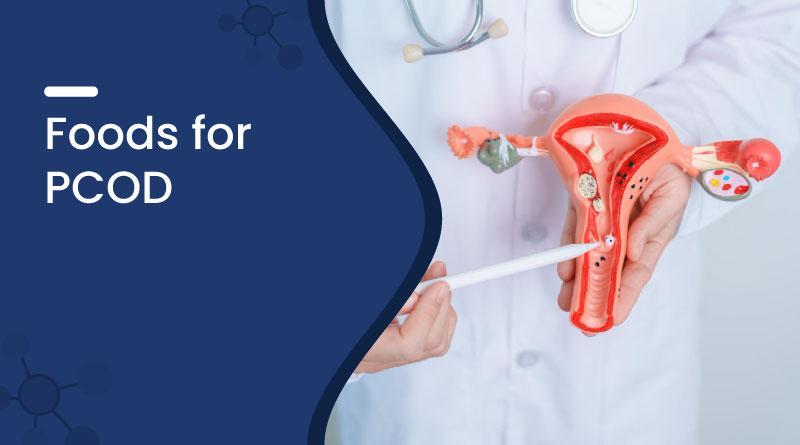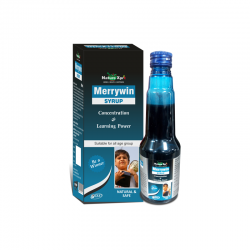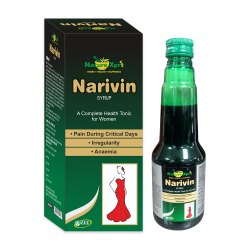Best Foods for PCOD Management | Healthy PCOD Diet Tips


Polycystic Ovary Disease (PCOD) affects millions of women worldwide, causing hormonal imbalances that often lead to irregular periods, weight gain, acne, and fertility issues. While medications and lifestyle changes are important, diet plays a crucial role in managing PCOD symptoms effectively. Eating the right foods can help balance hormones, improve insulin sensitivity, and reduce inflammation, providing relief from many PCOD symptoms.
In this blog, we will explore the best foods for PCOD that can support your health and wellness journey.
What is PCOD and Why Does Diet Matter?
PCOD is characterized by the presence of multiple cysts on the ovaries due to hormonal imbalance, particularly elevated androgens and insulin resistance. These hormonal changes can affect metabolism and lead to symptoms like weight gain, fatigue, and mood swings.
Diet plays a crucial role because it influences insulin levels and inflammation in the body. Choosing foods that stabilize blood sugar and reduce inflammation can make a significant difference in managing PCOD effectively.
Common symptoms of PCOD are:
- Irregular menstrual cycle
- Excessive hair growth (known as hirsutism)
- Acne or oily skin
- Hair thinning or hair loss
- Mood swings or depression
- Weight gain
- Bloating
Top Foods to Include in Your PCOD Diet
1. Low Glycemic Index (GI) Foods
Foods with a low glycemic index help control blood sugar spikes, which is essential since many women with PCOD have insulin resistance.
- Whole grains: Brown rice, quinoa, barley, oats
- Legumes: Lentils, chickpeas, kidney beans
- Non-starchy vegetables: Spinach, broccoli, cauliflower, zucchini
2. Fiber-Rich Foods
Fiber slows down digestion and prevents rapid blood sugar increases. It provides a feeling of fullness, which helps with weight management.
- Fruits: Berries, apples, pears
- Vegetables: Carrots, kale, Brussels sprouts
- Seeds: Chia seeds, flaxseeds
3. Lean Proteins
Including good-quality protein supports muscle health and stabilizes blood sugar levels.
- Eggs
- Greek yogurt (unsweetened)
- Tofu and paneer (cottage cheese)
- Skinless chicken or fish
4. Healthy Fats
They have anti-inflammatory effects and contribute to balanced hormone levels.
- Nuts: Almonds, walnuts
- Seeds: Pumpkin seeds, sunflower seeds
- Oils: Olive oil, avocado oil
- Fatty fish: Salmon, mackerel
5. Foods Rich in Antioxidants
Antioxidants fight oxidative stress, which is often elevated in PCOD and can worsen symptoms.
- Colorful vegetables: Bell peppers, tomatoes, carrots
- Fruits: Oranges, cherries, pomegranates
- Green tea
Hydration and Its Impact on PCOD
Staying well-hydrated is essential for hormone balance and helps reduce bloating, a common complaint in PCOD. Drinking enough water throughout the day can support metabolism and provide relief from PCOD symptoms. Herbal teas and infused water are good alternatives without added sugars.
Natural Supplements for PCOD
In addition to diet and exercise, some herbal supplements may offer additional support in managing PCOD symptoms.
| Product | Key Features |
|---|---|
| Zeelab Shatavari Hormonal Balance Capsules | It helps to regulate menstrual cycles, reduce PMS symptoms, and improve overall hormonal health. |
Foods to Limit or Avoid in PCOD
- Processed carbs such as white bread, sweet pastries, and sugary drinks
- Processed and fast foods that are high in unhealthy fats and additives
- High-sugar snacks and desserts
- Excessive dairy, which may worsen acne for some women
- Trans fats found in fried and baked goods
Limiting these foods can reduce insulin spikes and inflammation, helping you manage symptoms more effectively.
Lifestyle Tips to Complement Your PCOD Diet
- Regular physical activity: Enhances the body’s response to insulin and supports effective weight management.
- Stress management: Meditation, yoga, and proper sleep regulate hormones.
- Consistent meal timings: Help maintain blood sugar stability.
How Does Diet Help in PCOD Management?
A balanced diet focusing on low-GI carbs, fiber, lean protein, and healthy fats helps regulate insulin levels, reduce androgen excess, and promote weight loss. Managing weight and blood sugar effectively can improve menstrual regularity, reduce acne, and enhance fertility outcomes.
Conclusion
Managing PCOD effectively requires a comprehensive approach, and diet is a vital part of this. Prioritizing whole, unprocessed foods rich in fiber, lean proteins, healthy fats, and antioxidants can balance hormones, reduce inflammation, and ease symptoms. Remember, each woman’s body responds differently, so work with a healthcare provider to create a diet plan that’s right for you.
Frequently Asked Questions (FAQs)
Q. Can eating certain foods cure PCOD?
A. No, PCOD cannot be cured by diet alone. However, eating the right foods can greatly help manage symptoms and improve your health.
Q. Should I avoid all carbohydrates if I have PCOD?
A. Not at all. Focus on complex carbohydrates with a low glycemic index instead of cutting out carbs completely.
Q. Can drinking enough water ease PCOD symptoms?
A. Yes, staying hydrated helps reduce bloating, supports hormone balance, and improves metabolism.
Q. What are the best foods to avoid if I have PCOD?
A. It’s best to limit refined carbohydrates, sugary snacks, processed foods, and trans fats, as these can worsen insulin resistance and inflammation.
Q. Can herbal teas help with PCOD?
A. Herbal teas like spearmint, green tea, and cinnamon may ease bloating and hormonal imbalance, but should support, not replace, a healthy diet.
Q. Are there any natural supplements that can help with PCOD?
A. Yes, herbal supplements like Zeelab Shatavari Hormonal Balance Capsules may help support hormonal balance and menstrual regularity.
Shankhpushpi + Brahmi + Mandook Parni + Amlaki + Pathya + Jatamansi + Jyotishmati + Yastimadu + Aswagandha + Vidang + Tagar + Vacha
225ml Syrup in 1 bottle
Ashok (75 mg) + Lodhra (35 mg) + Patranga (30 mg) + Sariva (35 mg) + Kumari (65 mg) + Shatavari (30 mg) + Bala (60 mg) + Punarnava (45 mg) + Ashwagandha (40 mg) + Daru Haldi (35 mg) + Ulatkambal (65 mg) + Dashmool (40 mg) + Mochras (30 mg) + Chandrasur (60 mg) + Bol (30 mg)
225ml in 1 bottle
Recent Blogs
Disclaimer : Zeelab Pharmacy provides health information for knowledge only. Do not self-medicate. Always consult a qualified doctor before starting, stopping, or changing any medicine or treatment.


















 Added!
Added!